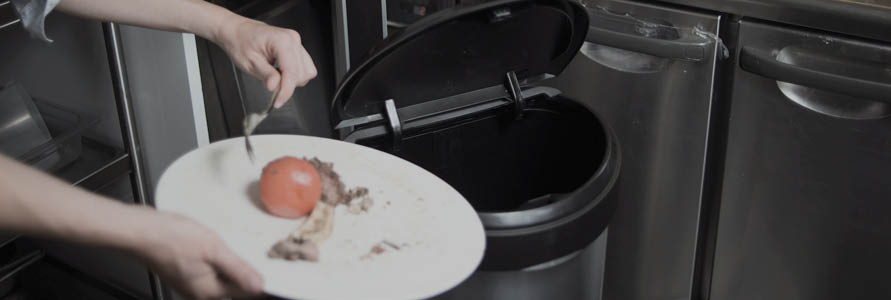The hospitality and foodservice industry is constantly looking for new ways to be competitive, productive and more sustainable economically, environmentally and socially. Maximising the use of food and reducing food waste are therefore of key importance for the industry. It saves you money and reduce your operation's environmental footprint at the same time.
Companies committed to measure and strategically reduce food waste are demonstrating the short and long-term benefits of doing so. Our clients have shown that by measuring and monitoring it can cut waste by 50% or more by value.
We found that many foodservice operators underestimate the food waste they generate on site. The reason for this is that they lack the correct tools to measure what is thrown into the bin. When they are given the right tools to measure food waste, they often find that waste is twice or more their original estimates. In reality, food waste costs the hospitality sector approximately $100bn globally.
In the past few years, we’ve worked with hundreds of kitchens and identified 4 easy restaurant food waste solutions. Looking at the activity in each area of your kitchen in more detail will help you trace the inputs of goods and products and the factors that contribute to the production of food waste.
1. Storage and spoilage
- Factors that can contribute to storage waste and spoilage: food is stored in damp conditions, wrong degree of temperature, lack of knowledge of hygiene.
- Preventing spoilage: Review stock management and food delivery processes for food items. Store stock correctly at the right temperature and date all products when you receive them. Put new products at the back of the shelf so older food gets used first.
2. Preparation
- Factors that can contribute to waste: cooking error, over-trimming, lack of standardised recipe.
- Preventing waste during preparation: Provide training to improve efficiency of food preparation will help you to reduce food waste, obtain the optimal number of dishes from the purchased ingredients and as a consequence reduce your costs.
3. Overproduction
- Factors that can contribute to overproduction: poor purchasing practices, failure to check deliveries, poor storage practices, lack of proper production record to indicate how much of each item to prepare.
- Preventing overproduction: Small things such as switching from bulk production to smaller batches, revising order quantities regularly, preparing daily production estimate can lead to significant results in reducing overproduction.
4. Plate waste
- Factors that can contribute to overproduction: oversized portions, customers can fill various plates with refill option.
- Preventing plate waste: Monitor how much and what type of food waste is left by your customers. Once you have this information, you can implement back-of-house changes as well as working directly with your customers. Start offering choice and portion options and offer doggy bags for leftover food.
If you would like advice related to the prevention and management of food waste in your kitchen, we are here to help. Get in touch for a free consultation.










Comment on my blog